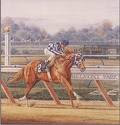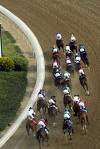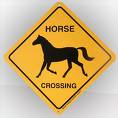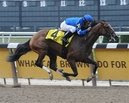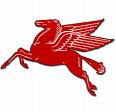 |
| BARNEY FRANK |
| |
by Frank Angst
Since being passed in 2006, the “enforcement” part of the Unlawful Internet Gambling Enforcement Act has been lacking, but that likely changed on Wednesday.
The United States Department of Treasury and the Federal Reserve Bank announced new regulations for banks and other financial institutions that requires them to block transactions between customers and illegal Internet gambling sites. The 120-page document was released Wednesday.
Pari-mutuel wagering on horse racing is one of the few exceptions in the Internet gambling ban, which in theory, would mean sites that contribute to pari-mutuel pools would face less competition in the United States from off-shore sites that book racing wagers and pirate signals. Also, the law promises to crack down on sites that offer Internet poker, sports gambling, and casino style gaming, all potential competition for horse racing.
The Unlawful Internet Gambling Enforcement Act had always required enforcement at the transaction level but the House Financial Services Committee had suggested the requirement was an unreasonable burden to place on financial institutions. The committee passed the Payment System Protection Act in September, which called for further clarifications on legal and illegal forms of Internet gambling before instituting the law.
House Financial Services Committee Chairman Barney Frank (D-Massachusetts) had hoped to delay enforcement policies until after President-elect Barack Obama takes office in January.
“The proposed regulations, like the underlying UIGEA statute, fail to define the term 'unlawful Internet gambling,' leaving it to each financial institution to reconcile conflicting state and federal laws, court decisions, and inconsistent Department of Justice interpretations when determining whether to process a transaction,” Frank said. “Furthermore, some of the information needed to make this determination would likely be unavailable to banks because customers or financial institutions in foreign jurisdictions will likely be unwilling or unable to provide it.”
Without the teeth of financial institutions blocking transactions, the Unlawful Internet Gambling Enforcement Act of 2006 has done little to slow Internet gambling, which includes sports betting, poker, and casino-like games. With the enforcement requirements spelled out, sites like the popular Pokerstars.com, Fulltiltpoker.com, numerous sports betting outlets, and horse racing bookmakers could lose U.S. customers.
One concern about the new requirements is that financial institutions will have a hard time distinguishing between legal sites and illegal sites. Financial Services Committee members said financial institutions could end up blocking transactions to legal sites in their efforts to enforce the policy. Those legal sites would include U.S.-based advance deposit wagering outlets such as TVG.com, TwinSpires.com, XpressBet.com, and Youbet.com that conduct legal, pari-mutuel wagering.
The American Greyhound Track Operators Association expressed the same concern earlier this year.
“When presented with a choice of processing legal pari-mutuel transactions in the face of an ambiguous regulation, payment processors will, in all likelihood, avoid processing any transaction and could block legal transactions,” the association said. “Many financial institutions noted that the over-blocking provisions would allow them to block all transactions regardless of their legality.”
Banks must begin to enforce the new requirements on January 19, 2009. The rules require them to establish a relationship with various payment systems to ensure restricted transactions are not conducted. In outlining the new rules, the Department of the Treasury and Federal Reserve System said such relationships would allow banks to prevent restricted transactions without blocking lawful exchanges.















